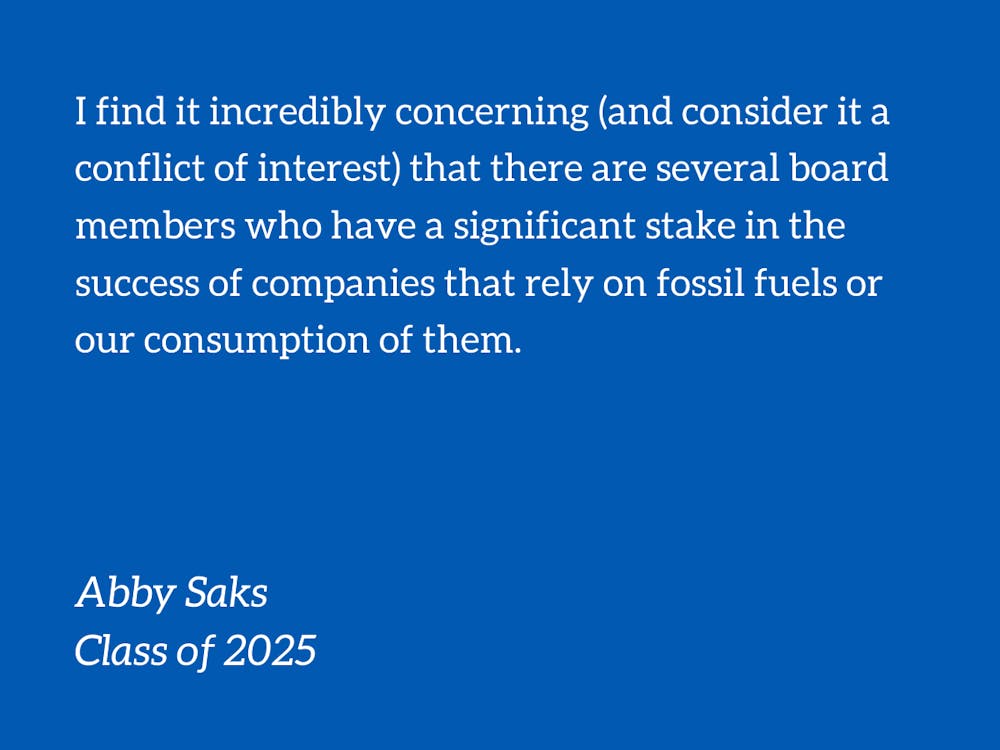As an institution supposedly committed to carbon neutrality and “high ethical standards”, divesting from fossil fuels may seem like the obvious next step, especially after the recent referendum where over 90% of votes were in support of divestment. Nonetheless, the Board of Trustees and the Advisory Committee on Investment Responsibility (ACIR) have yet to release a formal response to the referendum.
There are a lot of reasons as to why Duke claims divestment is not a good idea, but the primary one is that divestment would be entirely symbolic. Surely, the fact that a world-class institution such as Duke is divesting from fossil fuels would carry some weight for economists, investors, and policymakers (specifically when it comes to the longevity and financial sustainability of their investments)? Not according to the ACIR and the Board of Trustees.
To me, the other claims that Duke has made against divestment do not hold up upon closer examination. So, why hasn’t Duke divested? I think it is best to look at the makeup of the Board of Trustees. First, look at Robert Penn: the president of three private oil and gas production companies, none of which have any publicly available commitments to reducing carbon emissions. Then, there is Mary Barra, the CEO of General Motors (GM), which– while committing to carbon neutrality by 2040 –is still a company that currently relies largely on fossil fuel consumption. Next are Tim Cook and Eddy Cue, who are, respectively, the CEO and the vice president of Internet Softwares and Services of Apple, a company lacking a “net-zero pledge with ‘reasonable integrity’”, according to a report by Business Insider. Other Board members of interest include J.B. Pritzker (owner of an investment firm with two of its four investment recipients being plastic companies), Gerald Hassell (CEO of an investment firm that is the depositary bank for an oil and gas company, and that lacks any concrete commitments to net zero), and Michael Rhodes (head of Innovation, Technology and Shared Services at TD Bank, which actually increased their fossil fuel investments in 2021).
This isn’t to say that every member of the Board of Trustees works in environmentally unsustainable industries. Indeed, the Board’s Chair, Laurene Sperling, oversees many charitable organizations and an impact investing entity, and the Board’s Vice Chair, Carmichael Roberts, is a senior member/founder of several companies that are helping to move us to a green economy, to name a few. Still, I find it incredibly concerning (and consider it a conflict of interest) that there are several board members who have a significant stake in the success of companies that rely on fossil fuels or our consumption of them. I am not calling for the removal of such individuals from the Board, but I do not think they should have a serious role to play in the divestment conversion when so much is at stake for them. Divestment is necessary to prevent the deaths of millions of people and ensure a livable future for my generation, but personal interests are currently obscuring any legitimate concern from many members of the Board of Trustees.
Abby Saks is a first-year in the Trinity College of Arts and Science and a member of the Duke Climate Coalition’s Divestment Team.
Get The Chronicle straight to your inbox
Sign up for our weekly newsletter. Cancel at any time.

